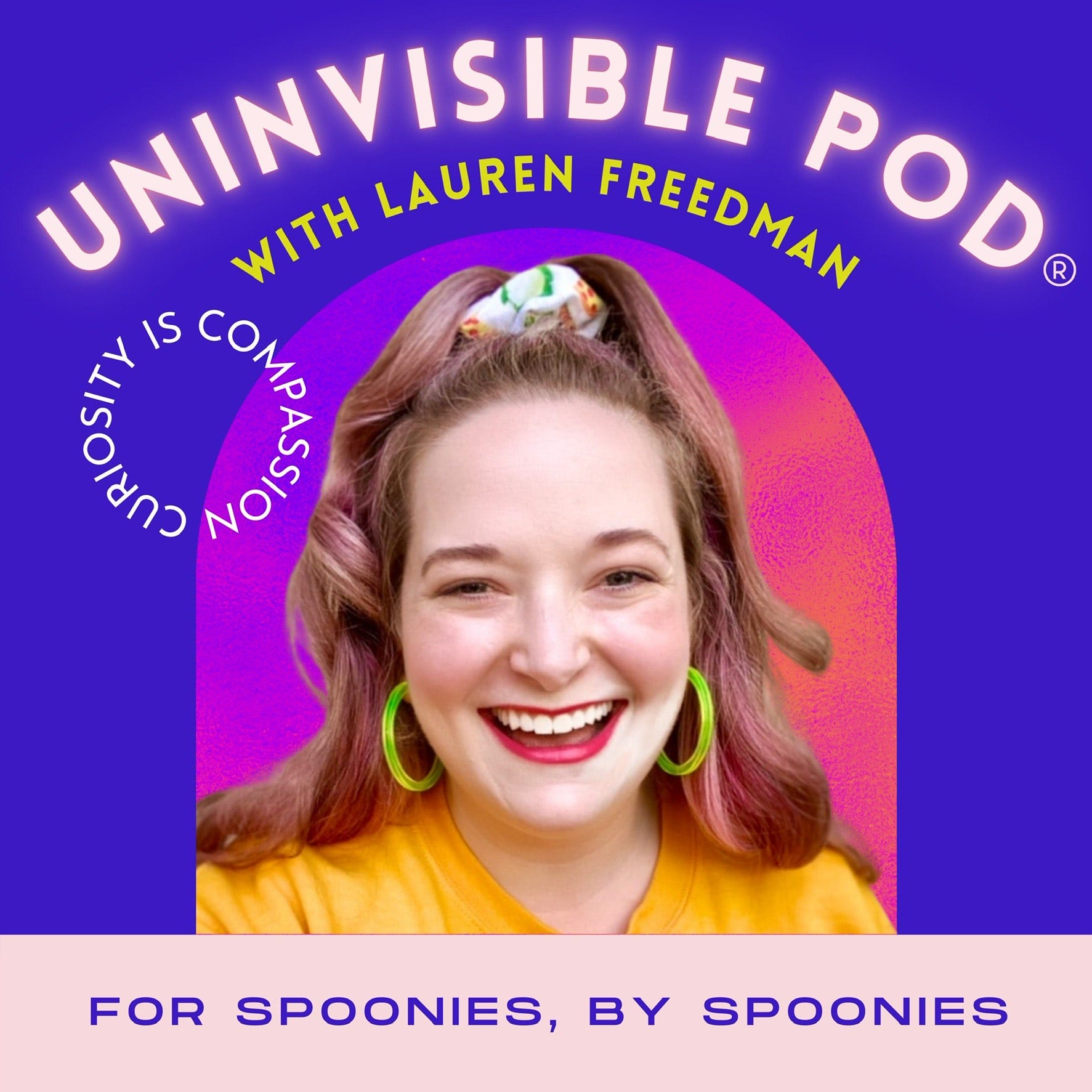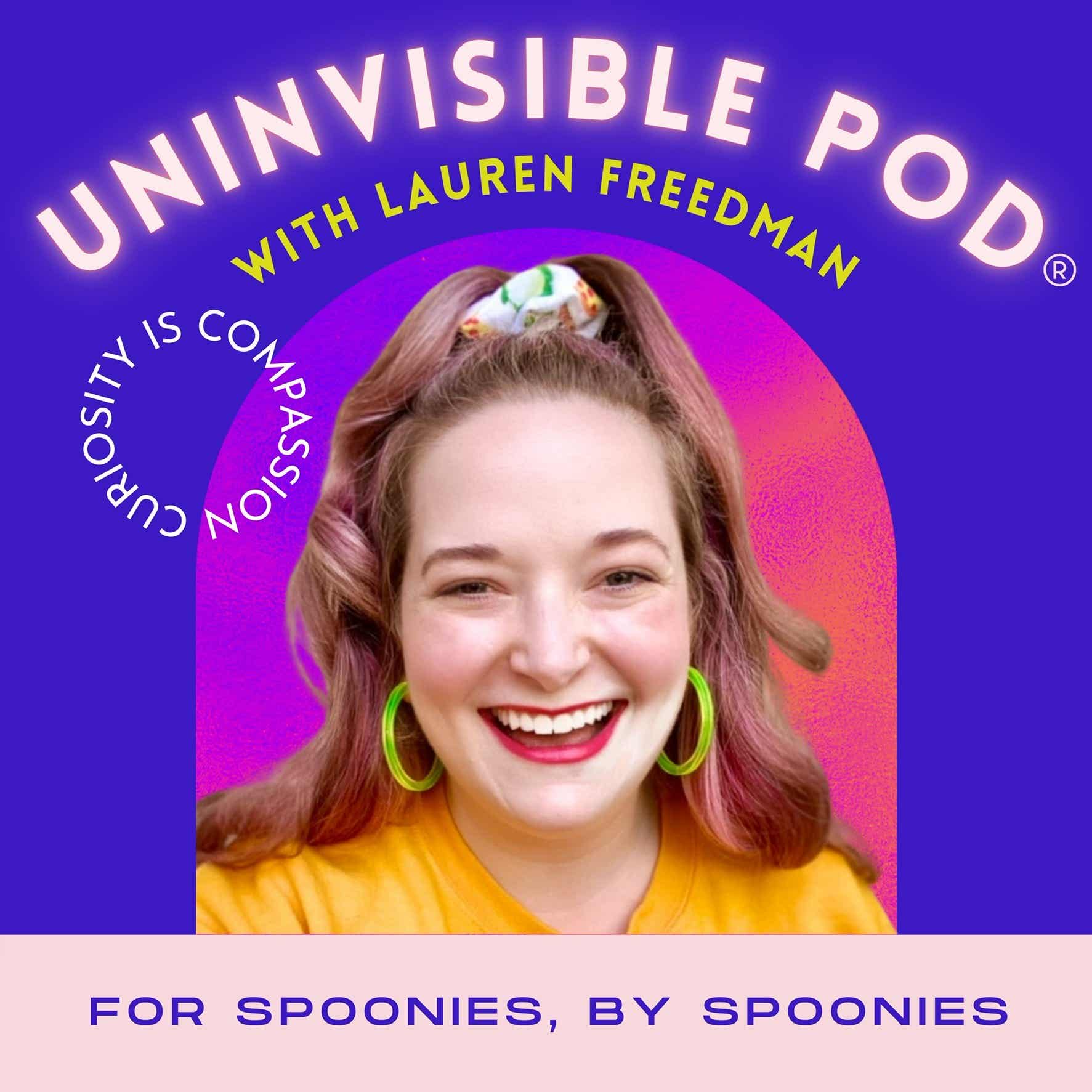
020: Depression, Anxiety, Digestive Issues, & Chronic Migraines with Alison Yate

Uninvisible Pod with Lauren Freedman
Shownotes Transcript
Alison Yates is a multi-hyphenate creative living in Los Angeles. A comedienne and actor, producer, writer, photographer, social media manager, website designer, and skincare consultant (phew!), she performs sketch and comedy regularly with Second City and the Groundlings, and has a production company called The People Zoo. She’s been featured on several TV shows, including Jane the Virgin and Mom. She’s lived with migraines since she was 6 years old, and depression and anxiety since she was 15; she very clearly sees the direct link between her migraines and her mental health symptoms.
**Listen in as Alison shares… **
when she had her first migraine (aged 6), and that she sees a genetic link in her family
that she also has digestive issues associated with her migraines and emotional wellbeing, and as such is always aware of the location of the nearest bathroom
that her digestive issues are currently undiagnosed (have been diagnosed as IBS in the past), but she manages her symptoms with dietary restrictions
how her migraines come on and manifest
treatments she’s tried to manage her migraine symptoms: pharmaceuticals (including Imitrex, Cymbalta, and Aimovig), marijuana and CBD, sleep, chiropractic, massage, physical therapy, acupuncture, Botox, daith piercing, yoga, meditation, and dietary changes
that many migraine medications also have an antidepressant effect
that women are more prone to migraines than men
that her entire life is designed around her migraines
that there is a cause and effect for every migraine, and her migraines are easily triggered by bright lights and spinal re-alignment (especially Alexander Technique and chiropractic)
that she sees a direct link between her migraines and depression/anxiety
that she overdosed on her migraine meds when she was 18
that she struggled to access Aimovig (monthly migraine medication) for 5 months, and finally got it
that she’s gone through at least 15 medical practitioners and medical practices in an effort to control her symptoms
that she experiences numbness after her aura – very similarly to stroke patients; sometimes she can’t distinguish whether she’s having a stroke or a migraine
that she’s at a higher risk for stroke because of her migraines
that she has learned to be her own health advocate
that she makes occasional visits to the ER for morphine if her pain is off the charts
that her migraines have wrecked her financial life and spiraled her into debt – between specialists, insurance costs, and surgeries
the guilt she feels when canceling plans when she has a migraine coming on, and the gender divide on guilt and responsibility toward others
that remote work has been essential to her earning capacity because she can’t work 9-5
that she’s created her own community of migraine survivors through social media
that, while social media can be helpful in terms of building community, it can also be incredibly alienating
that it’s much easier to talk publicly about her migraines than it is for her to address her anxiety and depression
that migraines have given her some agoraphobia and social anxiety
that she was told early on by friends that her “feelings were too big”, so she retreated into herself and her comedy is drawn from an accordingly deadpan style
that acting has been a productive outlet for her depression
the prevalence of mental illness in the entertainment industry
that trying to “be better” is exasperating This is a public episode. If you would like to discuss this with other subscribers or get access to bonus episodes, visit uninvisiblepod.substack.com)